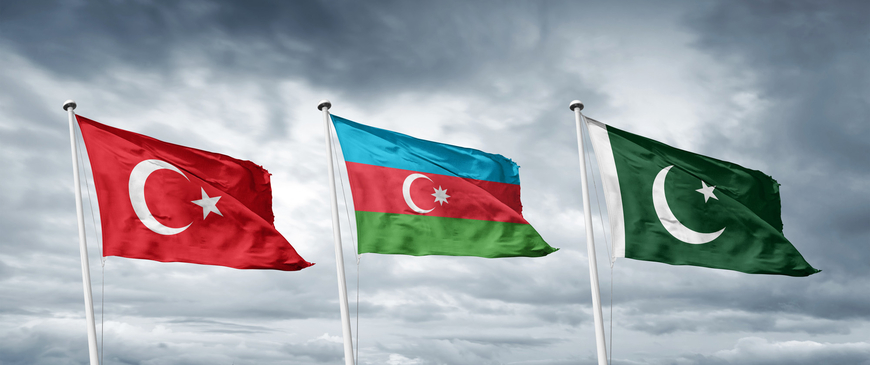Growing Antipathy Towards Pakistan, Turkey, And Azerbaijan In India

Table of Contents
The Role of Pakistan in Fueling Antipathy
Pakistan's actions have long been a primary driver of negative sentiment in India. The persistent issues of cross-border terrorism and disinformation campaigns, coupled with strained economic ties, have significantly contributed to this antipathy.
Cross-Border Terrorism and Security Concerns
The persistent threat of cross-border terrorism emanating from Pakistan remains a significant source of friction. Years of terrorist attacks, many originating from Pakistani soil, have deeply impacted Indian public opinion.
- The Mumbai attacks of 2008 remain a stark example of the devastating consequences of cross-border terrorism.
- Ongoing low-intensity conflicts in Kashmir, fueled by cross-border infiltration and support for militant groups, further exacerbate tensions.
- These security threats directly impact national security, fostering a climate of fear and distrust towards Pakistan. Keywords like "cross-border terrorism," "security threats," "Kashmir conflict," "terrorist attacks," and "national security" highlight the gravity of this issue.
Propaganda and Disinformation Campaigns
Pakistan is also accused of engaging in widespread propaganda and disinformation campaigns against India. This includes:
- Disseminating fake news and manipulated information through social media platforms.
- Utilizing state-sponsored media outlets to spread biased narratives and anti-India sentiment.
- These campaigns aim to undermine India's image internationally and create internal divisions. The use of keywords like "disinformation," "propaganda," "fake news," "social media manipulation," and "media influence" is crucial for SEO optimization in this context.
Economic and Trade Disputes
Strained economic relations further contribute to the antipathy. The limited trade between the two nations, coupled with occasional economic sanctions, reflects the deeply troubled bilateral relationship.
- Trade barriers and protectionist policies hinder economic cooperation.
- The lack of significant economic engagement reinforces negative perceptions.
- Keywords like "trade disputes," "economic sanctions," "bilateral relations," and "economic warfare" effectively capture the economic dimension of the conflict.
Turkey's Shifting Geopolitical Alignment and its Impact on India
Turkey's increasingly close relationship with Pakistan and its stance on the Kashmir issue have significantly impacted India-Turkey relations.
Support for Pakistan and Opposition to India's Stance on Kashmir
Turkey's vocal support for Pakistan's narrative on Kashmir has caused considerable resentment in India.
- Statements and actions by Turkish officials have been interpreted as biased and inflammatory.
- This perceived support for Pakistan fuels the perception of Turkey as an unreliable partner.
- Keywords like "Kashmir dispute," "geopolitical alliances," "Turkey-Pakistan relations," "diplomatic tensions," and "international relations" are vital for effective SEO in this section.
Growing Concerns over Turkish Influence in South Asia
India also harbors concerns regarding Turkey's growing influence in South Asia.
- Turkey's expanding economic and political ties in the region are seen by some as a potential challenge to India's regional dominance.
- This fuels anxieties about a shifting power dynamic and potential threats to India's strategic interests.
- Keywords like "regional influence," "South Asian geopolitics," "strategic competition," and "power dynamics" are essential here.
Azerbaijan's Role and the South Caucasus Dynamic
Azerbaijan's relationship with both Turkey and Pakistan has implications for its ties with India.
Perceived Closeness to Turkey and Pakistan
India observes Azerbaijan's close relations with Turkey and Pakistan with some concern.
- This perceived alignment raises questions about Azerbaijan's neutrality in regional disputes.
- Potential implications for India's regional strategy are being closely monitored.
- Keywords such as "South Caucasus," "Azerbaijan-Turkey relations," "regional alliances," and "strategic partnerships" are crucial for search engine optimization.
Limited Direct Interaction and Potential for Improved Relations
Despite the existing geopolitical context, there is potential for improved relations between India and Azerbaijan.
- Currently, direct interaction is limited, presenting an opportunity for increased bilateral cooperation.
- Focusing on economic diplomacy and cultural exchange could help bridge the gap and reduce existing antipathy.
- Keywords such as "bilateral cooperation," "economic diplomacy," and "cultural exchange" help optimize this section for search engines.
Conclusion: Understanding and Addressing the Growing Antipathy Towards Pakistan, Turkey, and Azerbaijan in India
The growing antipathy towards Pakistan, Turkey, and Azerbaijan in India stems from a complex interplay of factors, including cross-border terrorism, disinformation campaigns, strained economic relations, and perceived geopolitical alignments. This negative sentiment has significant consequences for regional stability and India's foreign policy. Addressing these challenges requires a multifaceted approach that includes strengthening national security, combating disinformation, and fostering constructive dialogue. Further research and open discussion are crucial for understanding the complexities of India's relations with these countries and exploring strategies for improving these relationships. We must continue to analyze the growing antipathy toward Pakistan, Turkey, and Azerbaijan in India, and work towards improving India's relationships with these nations to promote regional peace and stability. Addressing the negative perception of Pakistan, Turkey, and Azerbaijan in India is a key challenge requiring sustained diplomatic efforts and a nuanced understanding of the underlying issues.

Featured Posts
-
 Amsterdam Knife Attack Police Raid Hotel After Multiple Injuries
May 18, 2025
Amsterdam Knife Attack Police Raid Hotel After Multiple Injuries
May 18, 2025 -
 Photo 5141430 Pregnant Cassie And Alex Fines Mob Land Premiere Red Carpet Moment
May 18, 2025
Photo 5141430 Pregnant Cassie And Alex Fines Mob Land Premiere Red Carpet Moment
May 18, 2025 -
 Amanda Bynes Returns To The Public Eye With 50 Only Fans Subscription
May 18, 2025
Amanda Bynes Returns To The Public Eye With 50 Only Fans Subscription
May 18, 2025 -
 Amsterdam Hotel Attack Police Investigation Following Knife Injuries
May 18, 2025
Amsterdam Hotel Attack Police Investigation Following Knife Injuries
May 18, 2025 -
 Former Child Star Amanda Bynes Joins Only Fans A Strict Content Policy Explained
May 18, 2025
Former Child Star Amanda Bynes Joins Only Fans A Strict Content Policy Explained
May 18, 2025
Latest Posts
-
 Mike Myers Patriotic Snl Outfit Sparks Conversation The Canada Is Not For Sale Shirt
May 18, 2025
Mike Myers Patriotic Snl Outfit Sparks Conversation The Canada Is Not For Sale Shirt
May 18, 2025 -
 Mike Myers And Colin Mochrie Headline Toronto Charity Event
May 18, 2025
Mike Myers And Colin Mochrie Headline Toronto Charity Event
May 18, 2025 -
 Tna Sacrifice 2023 Mooses Absence And The Hardys Fate
May 18, 2025
Tna Sacrifice 2023 Mooses Absence And The Hardys Fate
May 18, 2025 -
 Canadian Pm Carney And Mike Myers Condemn Trumps Policies
May 18, 2025
Canadian Pm Carney And Mike Myers Condemn Trumps Policies
May 18, 2025 -
 Mike Myers Canada Is Not For Sale Snl Shirt A Bold Statement
May 18, 2025
Mike Myers Canada Is Not For Sale Snl Shirt A Bold Statement
May 18, 2025
